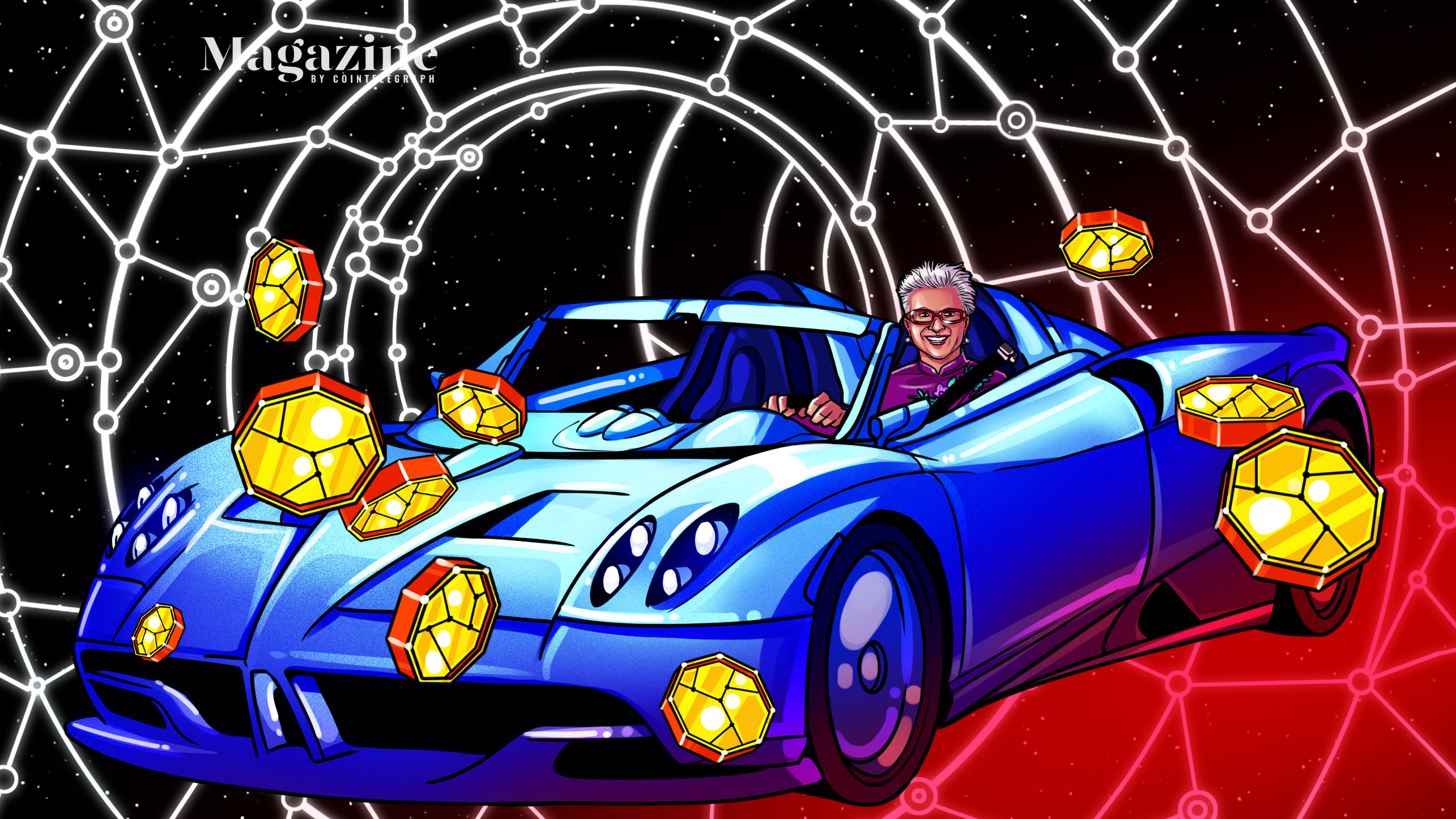You can transform the world with blockchain: Dr Jane Thomason
Jane Thomason is an Australian academic who spent 15 years running hospitals and doing development work overseas, followed by a 20-year period building a revenue-generating company $250 million business.
Thomason, now a blockchain adviser to the World Health Organization, says she "had an epiphany" thinking about the 2004 tsunami in Indonesia, in which the lives of more than 200,000 people was carried away.
"No one knew the identities of the people going to the hospitals - all the IDs were gone, all the bank statements were gone, all the medical records were gone. People wanted to send money to the living, but no one could send money directly."
 Dr. Jane Thomason believes in the power of blockchain to help make the world a better place.
Dr. Jane Thomason believes in the power of blockchain to help make the world a better place.Thomason thinks that if this data had been recorded on a blockchain, "people could very quickly reconnect to their data and access their identity, health and banking records". The realization convinced Thomason that it had to play a role in helping the technology develop for humanitarian applications.
"My blockchain story is pretty cute," says Thomason, explaining that she "completely ignored" her son's advice when, in 2010, he encouraged her to buy Bitcoin. He broached the subject again in 2015, becoming "really frustrated" with Thomason's inaction.
“He said, 'Listen – Bitcoin is built on the blockchain, and the blockchain is going to change everything and you need to know more. »
Thomason started reading and, after several months, began to feel a strong attraction to the industry. She has since moved into the “blockchain for social impact” niche and is the author of several books, including Blockchain Technology for Global Social Change and Blockchaining the World , and acts as a blockchain. advisor to various international organizations, such as the World Health Organization and the Commonwealth Secretariat.
 Dr. Jane Thomason is a regular at crypto conferences around the world. Source: drjanethomason.net
Dr. Jane Thomason is a regular at crypto conferences around the world. Source: drjanethomason.netThomason believes that beyond all the talk of cryptocurrency, blockchain is a technology that can solve practical problems for some of the world's most disadvantaged groups by making it easier and more secure to identify, medical records, banking, supply chains and supporting climate action. Despite the rosy picture, she remains concerned about the current state of the industry and wonders if the industry understands its own climate footprint.
Social Benefits of BlockchainsWhen it comes to blockchain and identity, Thomason thinks recognition by governments is the biggest hurdle, as many people around the world don't have any type of ID to begin with. Identity is a person's "window to the world", making it perhaps the most important problem to solve.
Financial inclusion can be tackled with stablecoins, which people can easily send and receive. Despite praise from the Bitcoin community, Thomason remains skeptical...

Jane Thomason is an Australian academic who spent 15 years running hospitals and doing development work overseas, followed by a 20-year period building a revenue-generating company $250 million business.
Thomason, now a blockchain adviser to the World Health Organization, says she "had an epiphany" thinking about the 2004 tsunami in Indonesia, in which the lives of more than 200,000 people was carried away.
"No one knew the identities of the people going to the hospitals - all the IDs were gone, all the bank statements were gone, all the medical records were gone. People wanted to send money to the living, but no one could send money directly."
 Dr. Jane Thomason believes in the power of blockchain to help make the world a better place.
Dr. Jane Thomason believes in the power of blockchain to help make the world a better place.Thomason thinks that if this data had been recorded on a blockchain, "people could very quickly reconnect to their data and access their identity, health and banking records". The realization convinced Thomason that it had to play a role in helping the technology develop for humanitarian applications.
"My blockchain story is pretty cute," says Thomason, explaining that she "completely ignored" her son's advice when, in 2010, he encouraged her to buy Bitcoin. He broached the subject again in 2015, becoming "really frustrated" with Thomason's inaction.
“He said, 'Listen – Bitcoin is built on the blockchain, and the blockchain is going to change everything and you need to know more. »
Thomason started reading and, after several months, began to feel a strong attraction to the industry. She has since moved into the “blockchain for social impact” niche and is the author of several books, including Blockchain Technology for Global Social Change and Blockchaining the World , and acts as a blockchain. advisor to various international organizations, such as the World Health Organization and the Commonwealth Secretariat.
 Dr. Jane Thomason is a regular at crypto conferences around the world. Source: drjanethomason.net
Dr. Jane Thomason is a regular at crypto conferences around the world. Source: drjanethomason.netThomason believes that beyond all the talk of cryptocurrency, blockchain is a technology that can solve practical problems for some of the world's most disadvantaged groups by making it easier and more secure to identify, medical records, banking, supply chains and supporting climate action. Despite the rosy picture, she remains concerned about the current state of the industry and wonders if the industry understands its own climate footprint.
Social Benefits of BlockchainsWhen it comes to blockchain and identity, Thomason thinks recognition by governments is the biggest hurdle, as many people around the world don't have any type of ID to begin with. Identity is a person's "window to the world", making it perhaps the most important problem to solve.
Financial inclusion can be tackled with stablecoins, which people can easily send and receive. Despite praise from the Bitcoin community, Thomason remains skeptical...
What's Your Reaction?






















